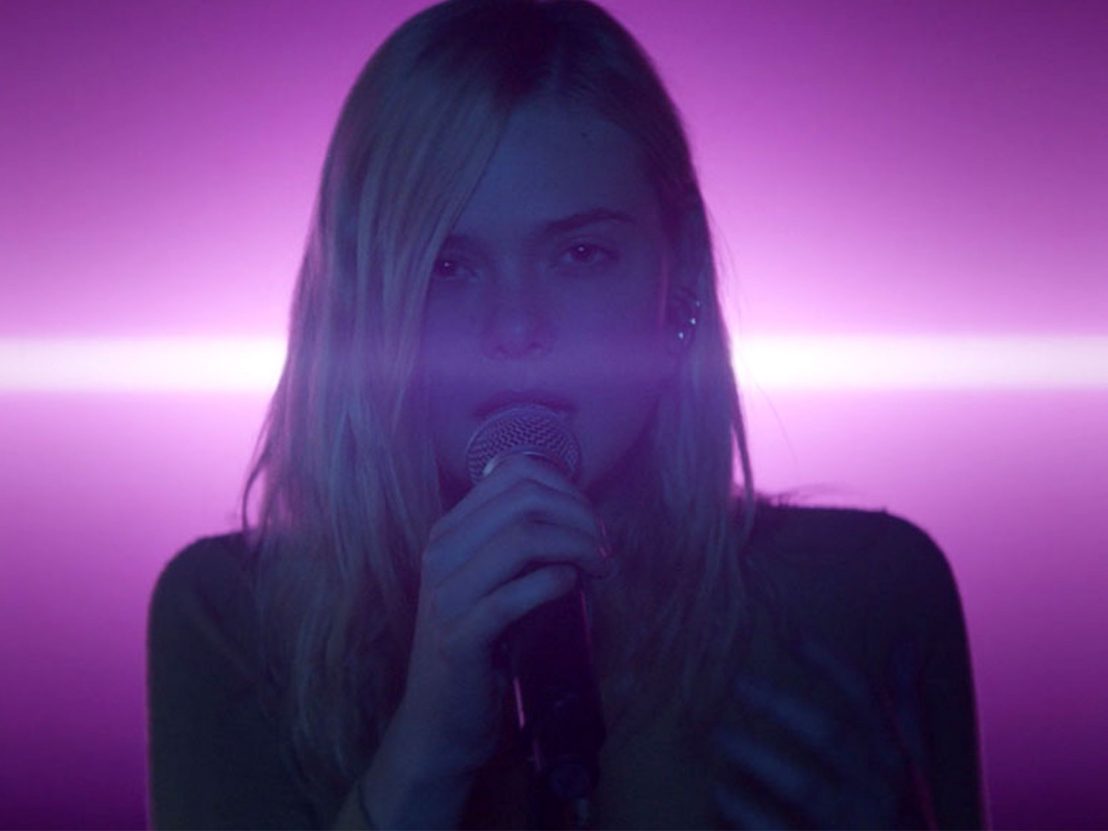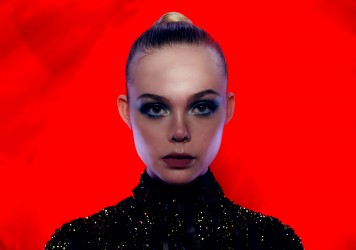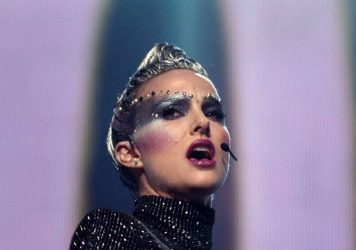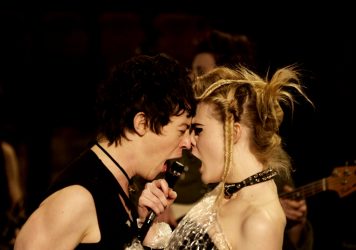
Elle Fanning plays a young talent show hopeful in Max Minghella’s sweet-sounding directorial debut.
In the seventh series of The X Factor, One Direction came third (Matt Cardle won), and the internet exploded with a fanbase quite unlike anything that anyone had seen before. The British talent show galvanised a new generation – of singers, of dancers, of fans – and it’s this which comes to life in Teen Spirit, Max Minghella’s starry, wholesome directorial debut.
Violet Valenski (Elle Fanning) looks like some kind of Wes Anderson black sheep in yellow clothing, her shoulders hunched as she waits to hear her fate as a semi-finalist in Teen Spirit, the singing competition that could change everything. She lives at home with her Polish mother and farm family of horses and chickens. When she’s not at school, or working one of two part-time jobs, she sings Tegan and Sara in front of a neon heart-shaped light.
More Toni Erdmann than Simon Cowell, Violet’s unlikely mentor is Vlad (Zlatko Buric), the only person who claps at the end of her songs. The pair embark on a road trip to Violet’s auditions for the newest talent competition, which travels the UK to find a teenager who truly smells like success. Along the way they learn about the importance of friendship and the cost of following your dreams, all in the name of pop music.
At her first audition, Violet sings Robyn’s ‘Dancing On My Own’. The dance anthem was given a new lease of life when Calum Scott covered it in his 2015 Britain’s Got Talent audition, later releasing it as a hit single. But what makes Violet’s version – and by extension Minghella’s film – so enticing is that pop music is preserved in its purest form: the cutting, synthesised beats punctuate the demanding vocals and tinkling six-note piano motif in the way that Robyn intended it.
Violet’s performance demands attention in its unapologetic kitschiness, emblematic of the original passion in the song. This era of pop music is one that demands to be listened to because it celebrates what’s happening right now, rather than lamenting what once was.
Minghella and cinematographer Autumn Cheyenne Durald light emotions in a curious way. Stage beams flood the frame, often blinding details on the young performers’ faces in favour of a cyan backlight or magenta focus. The emphasis is placed on the ultimate star factor of the product (the song as much as the performer), which forgives an editing style that sometimes suggests a marketing campaign more than a fairy tale. Every time Violet sings, a montage of dancing, spinning shots and bare close-ups of her expression illustrates the power of her voice.
Teen Spirit is a celebration of candid energy and the cookie-cutter charm of a very specific dream-making machine. If it were a different year, if Violet were of a different age, the film could be darker or more difficult to watch. But you can feel the influence of the TV that shaped the birth of a happy cult. Talent shows might be riddled with toxic imperfections and disastrous consequences on youthful self-esteem, but from the distant glow of a screen at home, there’s nothing guilty about the pleasure it brings.
Published 16 Sep 2018

Elle Fanning bares her soul in Nicolas Winding Refn’s beautiful dark twisted fantasy.

Natalie Portman plays a jaded pop star in director Brady Corbet’s cynical meditation on the price of fame.

John Cameron Mitchell returns to the director’s chair with a tale of teenage intergalactic romance.